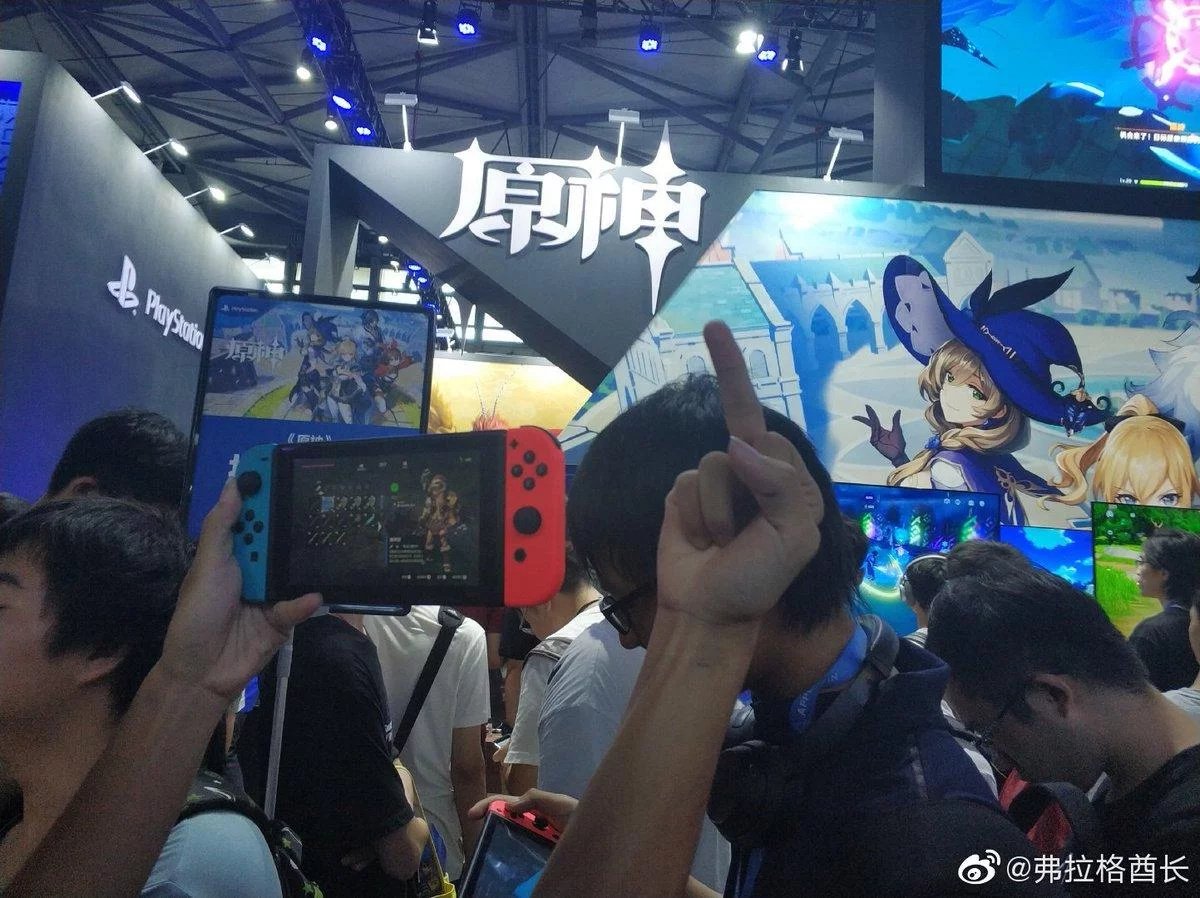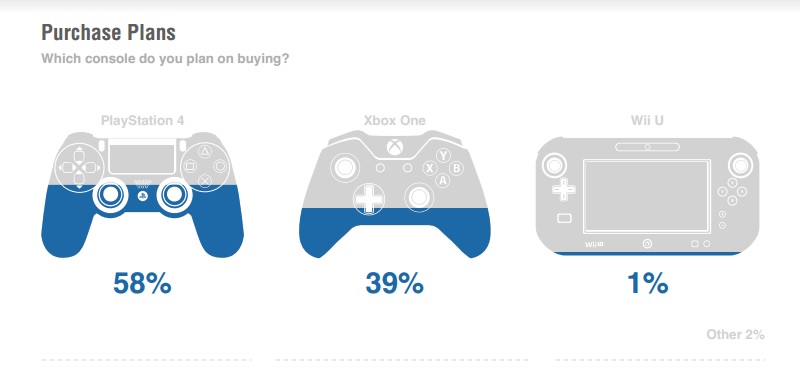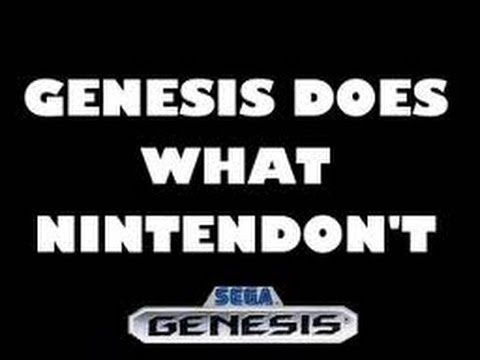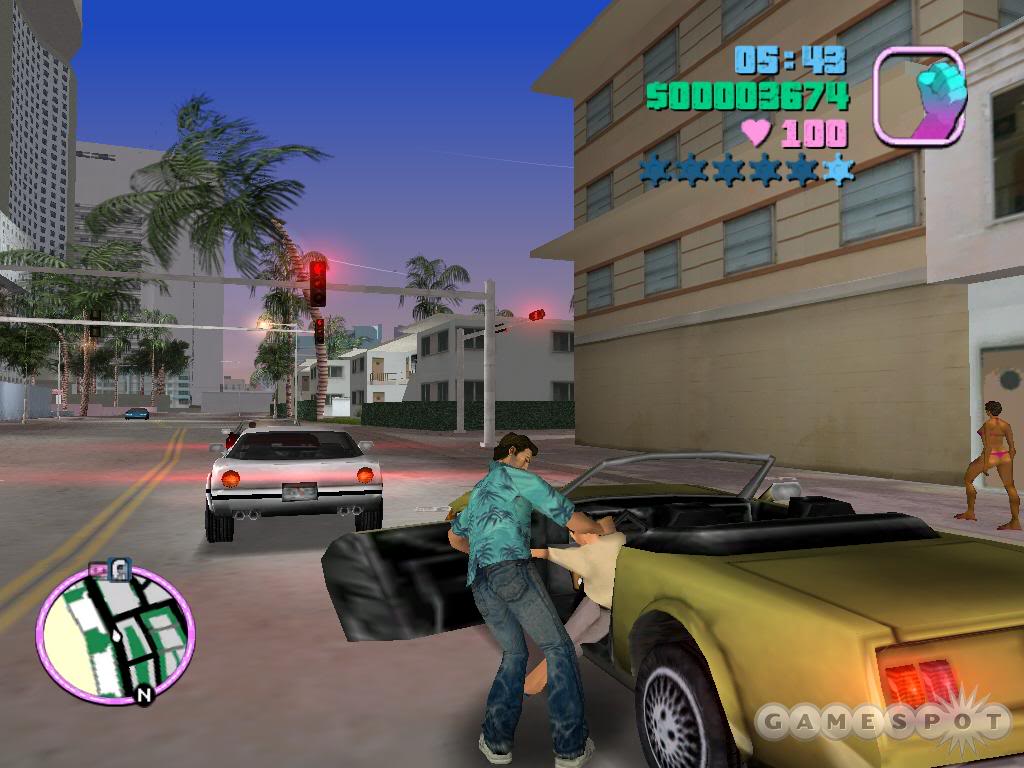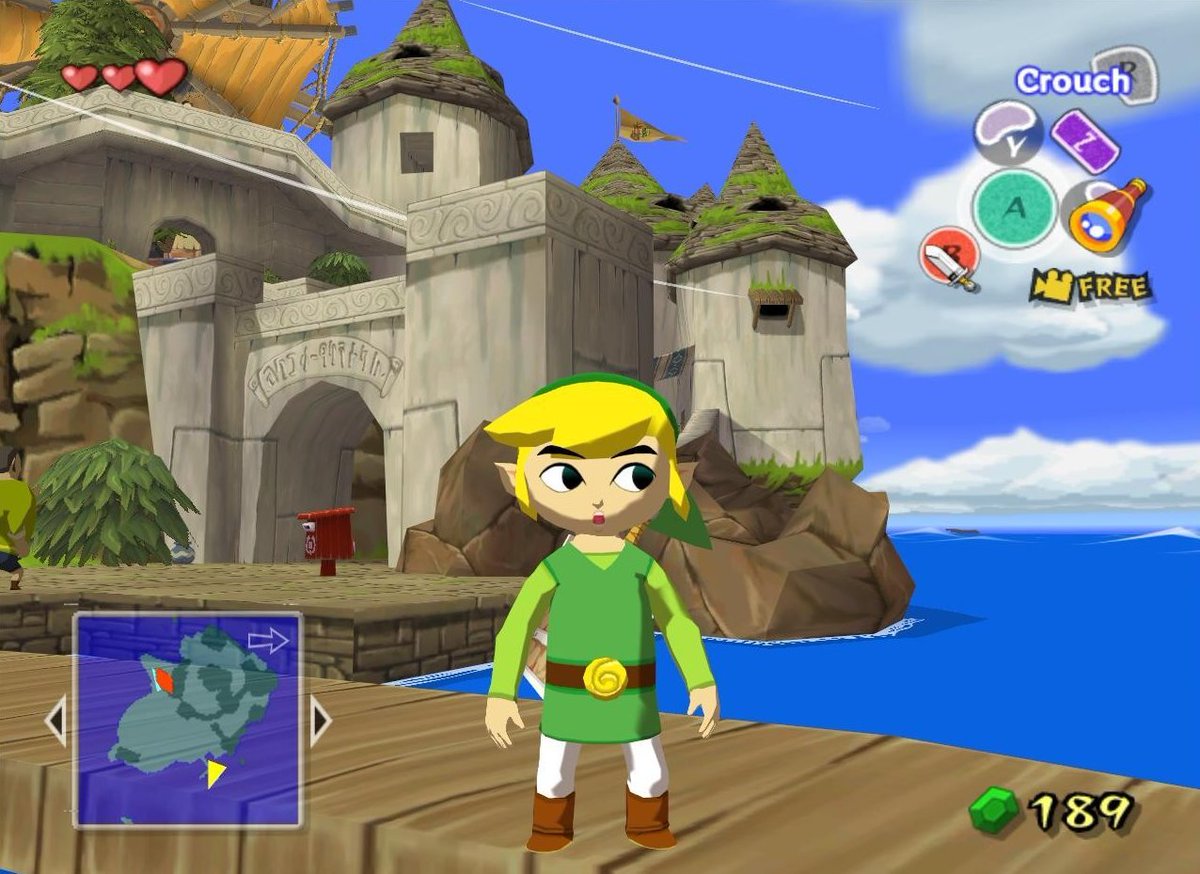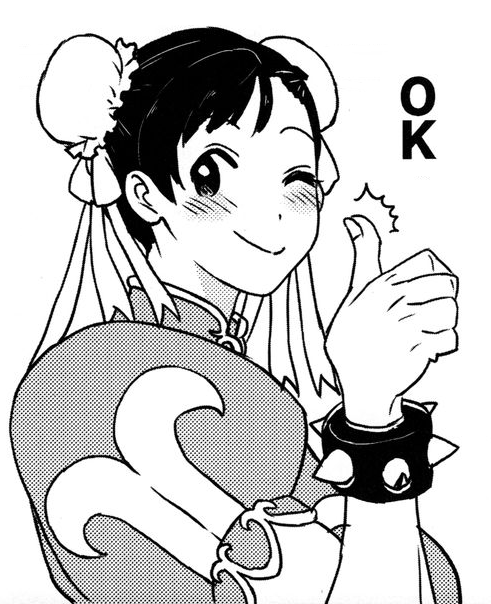Why are Nintendo fans so awful?
As a Nintendo fan myself, I think I can answer this.
a thread.
(tl;dr - they're the biggest fandom, so they have the most shitters, but keep reading anyway)
As a Nintendo fan myself, I think I can answer this.
a thread.
(tl;dr - they're the biggest fandom, so they have the most shitters, but keep reading anyway)
although first, we need to clarify what "awful" means in this context. Cuz most of it isn't unique to Nintendo, isn't even unique to video games.
A popular brand attracts a fanbase. And once the fans become aware of market competition with other brands, they see them as enemies.
A popular brand attracts a fanbase. And once the fans become aware of market competition with other brands, they see them as enemies.
chalk it up to human nature, or a symptom of capitalism, but there's the idea that similar products MUST compete for attention, money, and loyalty. Sometimes the companies will encourage this Us vs Them mentality, sometimes the fans just come up with it on their own.
Marvel vs DC. WWF vs WCW. Coke vs Pepsi. Disney vs Dreamworks. the list goes on.
The truth, of course, is that the market is plenty big for multiple brands to exist, and in fact that ought to be the desired outcome. We should WANT diversity in products, not a monopoly.
The truth, of course, is that the market is plenty big for multiple brands to exist, and in fact that ought to be the desired outcome. We should WANT diversity in products, not a monopoly.
But again, it's in the brands' best interest to let their fans fight it out. The more diehard zealots buying up everything they produce and evangelizing the product, the better.
And there's perhaps no better illustration of this phenomenon than the Console Wars.
And there's perhaps no better illustration of this phenomenon than the Console Wars.
it's silly, honestly. Maybe a family can only afford one console, or maybe your parents only allow you to get 1, but there's no real REASON why a person can't play games from any console (or PC, or portable). They don't have conflicting ideologies or require different TVs, even.
Nevertheless, gamers continually crow about sales numbers and review scores as if they have stock in the company. This isn't unique to Nintendo fans, let's get that straight. But what *is* unique to the Nintendo fandom is their position in this pointless war.
Maybe it all started with the Sega Genesis, the first real competitor to Nintendo's market dominance, and their highly effective ad campaign. And maybe this was justified, since big moves were needed to break into the market as the newcomer against Nintendo's power.
But now you had kids on the playground fighting it out for Mario vs Sonic, and the 10-year-old Nintendo fandom felt under attack for the first time (because they were). As the 90s would progress, and the Playstation joined the fray, Nintendo saw their market share decrease.
Of course, Sega ended up bowing out and Sony took off in a huge way, but as a 90s kid I didn't know the actual numbers. I just knew that some people hated my beloved Nintendo games. And in the 2000s, that feeling only increased, with Xbox arriving with Halo to change everything.
(Maybe if it wasn't clear, I'm exclusively talking about the American fandoms here, though possibly it's relevant to Europe as well. Nintendo's dominance was never truly challenged in Japan like it was in the West, so they have a different arc. anyway.)
As the huge cohort of kids aged 8-12 who got hooked on video games via Pokemon grew up and became teenagers, their tastes changed. You become a teenager, and wish to set aside childish things. That meant, in many people's eyes, saying goodbye to Mario and Pikachu and their kind.
Of course, more mature/violent games had existed for quite a while, but seeing this change first-hand caused a schism. Either you were cool and played Halo and GTA, or you were a little kiddie baby sissy who still played Nintendo games.
Again, Nintendo fandom was under attack.
Again, Nintendo fandom was under attack.
Xbox and PS2 had realistic graphics where characters did badass things with swearing, blood, and half-naked babes.
Meanwhile, the Gamecube's flagship Zelda title was a fucking cartoon.
Even if this wasn't the official statement from any companies, that was the mood at the time.
Meanwhile, the Gamecube's flagship Zelda title was a fucking cartoon.
Even if this wasn't the official statement from any companies, that was the mood at the time.
And then the Wii came along, with the silly name and sillier controller, seemed advertised to moms and babies, as the PS3 and Xbox 360 brought out increasingly hardcore M-rated titles.
The remaining Nintendo fans got defensive, because they had to be. They were losing the war.
The remaining Nintendo fans got defensive, because they had to be. They were losing the war.
At the same time, many of them were aging out of "childish" games, and wanted to play these cool games on other systems. And seeing Nintendo lean in harder with their family-friendly image on the Wii, some of them thought... maybe they were right. Maybe Nintendo *is* for losers.
This started the trend of the self-hating Nintendo fan, which I'll come back to later.
But despite everything, Nintendo's profits went through the roof. The Wii stopped being a joke and became a household name. The DS sold like crazy.
And so sales became a talking point.
But despite everything, Nintendo's profits went through the roof. The Wii stopped being a joke and became a household name. The DS sold like crazy.
And so sales became a talking point.
"Sure, the Wii doesn't have Modern Warfare 2, but it *does* have more units sold than your system! That means it's technically more popular and I'm NOT a loser! I'm on the winning team!"
Also around this time (late 2000s) metacritic became popular to compare review scores.
Also around this time (late 2000s) metacritic became popular to compare review scores.
Thus the big three talking points were born:
1. sales
2. scores
3. personal accounts
For the longest time, Nintendo fans had been taking L's on #3, but they could finally fire back with #1 and sometimes #2.
1. sales
2. scores
3. personal accounts
For the longest time, Nintendo fans had been taking L's on #3, but they could finally fire back with #1 and sometimes #2.
by the way, I should also state that there have always been fantastic games on every system and remind the readers that it's stupid to actually play favorites. If you want to play a game that's exclusive to a platform, go for it. Loyalty to brands is dumb as hell.
anyway, as the years went on and Nintendo followed up the Wii with the Wii U, things went from peak to valley. Nintendo was back on bottom, and it was more apparent than ever. the gaming cognoscenti produced articles predicting the end of Nintendo, and the fans despaired.
The despair was unnecessary, btw. Nintendo has enough money to eat losses for years, and their leadership has proven stubborn enough to continue doing their own thing rather than adapt. I fully believe they could have endured further declining sales for years.
But there I go, playing armchair analyst for a company I have no investment in beyond a foolish emotional attachment! :D
But, regardless, the Switch came out and turned things around again. Nintendo's not back on top, but they're back in the fray on all 3 talking points.
But, regardless, the Switch came out and turned things around again. Nintendo's not back on top, but they're back in the fray on all 3 talking points.
(thread to be continued, but I'm at the limit for batch posting)
So that's been a lengthy history lesson, with the takeaway being this: Nintendo fans are defensive because they keep getting attacked, but keep surviving.
Sony fans aren't defensive in this way, because they've been historically winning for every period except the PS3's launch.
Sony fans aren't defensive in this way, because they've been historically winning for every period except the PS3's launch.
Xbox fans get a ton of flak, but at the same time there's not enough legacy to cement the dedicated fanbase Nintendo has, so largely people don't care if they do well/poorly. Their main audience is tuned out to the console wars to begin with. (Same as Sony's, honestly)
and Sega certainly gets attacked enough, but after so many humiliations, they don't get chances to punch down anymore.
Whereas when Nintendo fans DO get those wins, they're poor winners. They're desperate for validation.
Whereas when Nintendo fans DO get those wins, they're poor winners. They're desperate for validation.
It's mostly the 20-somethings who are now pushing 30, but because these are also the same people becoming youtubers and influencing the younger generation, even teens who never knew the hard Gamecube years get conditioned in this rabid defense of Nintendo.
it's an extremely childish mindset, ironic given the original insult they still can't overcome is that Nintendo was "for kids".
But in any case, that explains why Nintendo fans are so uniquely awful to competitors. But why are they so awful to EACH OTHER?
But in any case, that explains why Nintendo fans are so uniquely awful to competitors. But why are they so awful to EACH OTHER?
This goes back to what I said before about the "self-hating Nintendo fan" who's doesn't like the direction of the brand, but years of loyalty prevent them from just going elsewhere. They don't want to play just any atmospheric sci-fi shooter, they want to play Metroid.
The thing is, Nintendo has so many franchises, going back so many years. Inside their umbrella, they have various sub-series fighting it out with the same sort of fandom wars. Which feels extra stupid, since they all make money for the SAME COMPANY, but.
"Every new Mario game is a Star Fox game that's not being made. Every time Fire Emblem gets a new installment, it must mean Animal Crossing is being pushed further back."
I mean sure there's limited time/resources, but it's really not as zero-sum as all that.
I mean sure there's limited time/resources, but it's really not as zero-sum as all that.
Regardless, you end up with various fandoms sitting around waiting for their number to be called. None of them willing to try anything new, because that would mean leaving Nintendo's umbrella, but all of them fuming when others get their turn first.
I think Super Smash Bros can share some blame for exacerbating this mentality. Because that's literally what the Brawl Dojo was, every day an update would be posted and it felt like a total lottery. Sometimes it would be nothing at all, sometimes a new stage or character.
So the fandoms sat around and watched as Ike, Pokemon Trainer, Olimar, King Dedede, and other got selected for enshrinement into Nintendo's Pantheon of the Gods. Smash Bros is like a Hall of Fame, and inclusion meant more than just "oh cool I can play as them in this one game"
it was a validation of your fandom, that Daddy Nintendo believed in the worth of your franchise enough to make them playable. (and that's the goal, everyone knows assist trophies and other consolation prizes sting worse than total exclusion)
In many ways, the Smash Bros Hype fandom is bigger than the People Who Actually Play Smash Bros fandom. Yeah there's the core competitive scene (who also has their own story of persecution, redemption, and domination) but most people are just casual players.
I don't need to say how rabid and obnoxious the Smash fandom has felt over the past few years, but since SSBU's release and the regular announcements of DLC characters, that's shifted to the main focus of the Nintendo fandom as a whole. Nothing is as important as Smash.
But the thing is, there's like 80 characters in it now. It's the most generous Hall of Fame I've ever seen. Getting in should mean less and less, but somehow people act like it means more. The fact that the doors have been opened to non-Nintendos brings additional tension.
it calls in outside fans to have a stake in what was previously an internal Nintendo affair, and it antagonizes diehard Nintendo fans who refuse to recognize games outside their bubble.
And this all goes hand-in-hand with the Nintendo Direct system.
And this all goes hand-in-hand with the Nintendo Direct system.
by framing their announcements in batches, Nintendo creates mini-events where all the fans can crowd around and hope they get lucky. Each time, it's the promise that today might be the random day when a new Kid Icarus pops up, or Pikmin 4! despite the odds being against it, ofc.
and now, even when Nintendo specifically tells people the type of news they can expect, the culture expects the moon anyway. It's a ridiculous pattern of hyping up announcements of announcements, then exploding into rage when dreams don't come true.
And this is something unique to the Nintendo fandom, I think. Playstation has started their own State of Play events, but the prevailing atmosphere seems to be that nobody expect anything from them and in fact just reminds them that Nintendo hasn't said anything in a while.
I don't know how to fix this, honestly.
Maybe you could just outright tell people that various series are forever dead and never coming back, but that's bad business. Keep those Golden Sun fans on the hook, all 50 of them, they'll show up if the stars ever align.
Maybe you could just outright tell people that various series are forever dead and never coming back, but that's bad business. Keep those Golden Sun fans on the hook, all 50 of them, they'll show up if the stars ever align.
But Nintendo is too big and too beloved to NOT have a host of diehard fans, and you can't just retroactively go back and say that Star Fox 64 never happened, Paper Mario never existed. Games like these captured people's hearts, but age has twisted them into something bitter.
Hype Culture has prioritized the announcement over everything else (including the release) and Nintendo has fostered its own culture of promoting announcements for franchises that are perceived as competing. The zealous fandom, already defensive, of course becomes caustic.
If Nintendo fans only realized there were more things in heaven and earth than dreamed of in Miyamoto's philosophy, maybe they could find happiness elsewhere.

 Read on Twitter
Read on Twitter